Hitachi 'more likely to put Wylfa Newydd on hold'
- Published
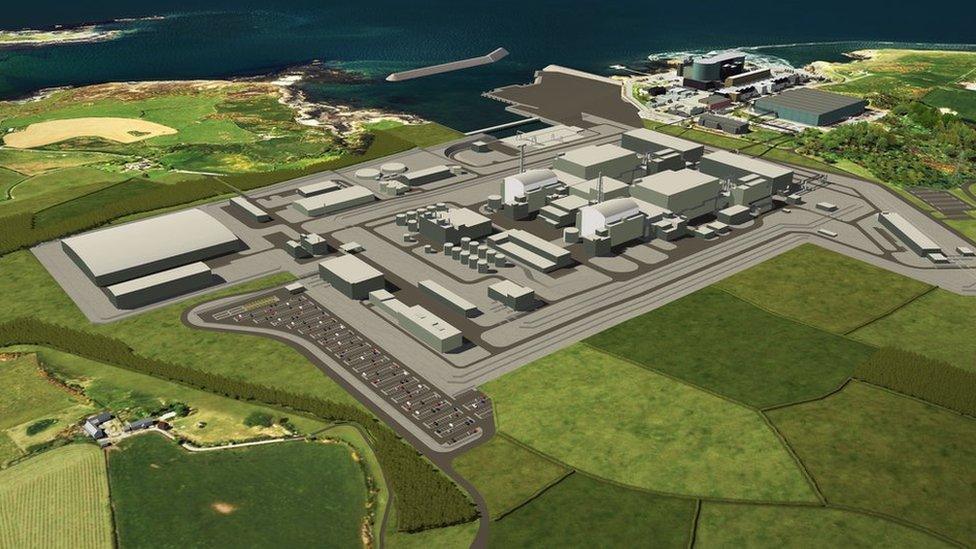
Work on Wylfa Newydd would start in 2020 if it gets the final go ahead
The company behind the Wylfa Newydd nuclear power plant is more likely to put it on hold rather than scrap it completely, an economic adviser claims.
Hitachi is expected to announce this week that it will suspend all work on the £20bn plant on Anglesey.
Questions have been raised about what it means for the north Wales economy.
Dr Edward Jones, who teaches economics at Bangor University and advises the North Wales Growth Bid, doubts Hitachi will walk away after investing £2bn.
Hitachi's UK subsidiary company, Horizon Nuclear Power, has been investing money in apprenticeships and training centres in north Wales, including at the Llandrillo Menai college group and Bangor University.
Robat Idris, from the anti-nuclear campaign group People Against Wylfa B (PAWB), told BBC Radio Wales that planning for the North Wales Growth Deal has been based on the premise that Wylfa Newydd would go ahead.
"It has driven the north Wales bid for growth, it's driven the local development plan," he told Good Morning Wales on Monday.
"I have heard of one apprentice, for example, who was given the choice between [Airbus in] Brougton and Horizon. He opted for Horizon. How must he be feeling today?"
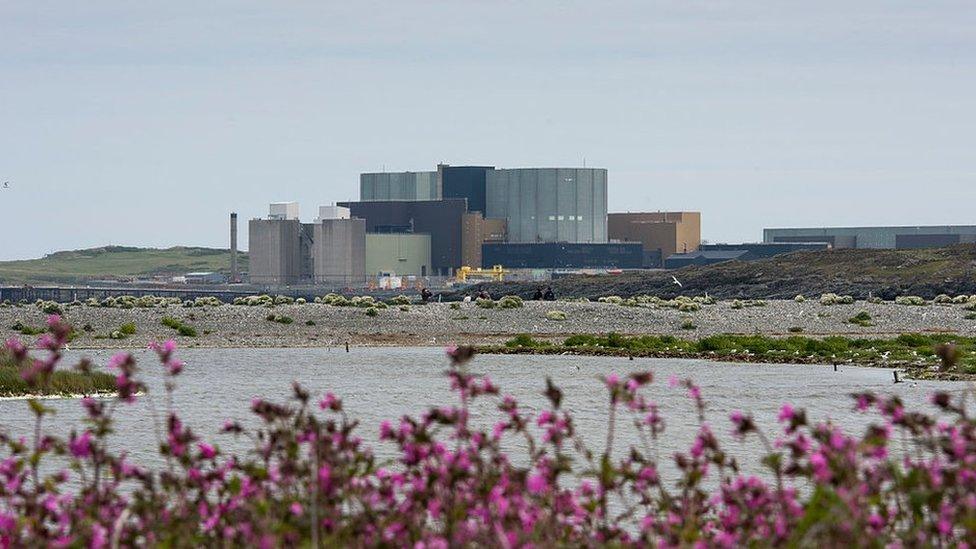
Wylfa Nuclear Power Station at Cemaes Bay, Anglesey, was decommissioned in 2015
Dr Jones explained that the £20bn investment is 20 times larger than the size of Anglesey's economy, which has a GVA (Gross Value Added) of £1bn, and is also bigger than the entire north Wales economy, which has a GVA of £13.6bn.
"It is going to have an impact across the whole of north Wales, given its size," he said. "From an economic perspective, it was certainly going to have an impact."
But Dr Jones believes Hitachi is far more likely to "press the pause button" rather than scrap the project completely because it has already invested £2bn.
If that happens, the economist said the question would turn to "how long does the pause last?"
He said: "What the government needs to do very, very quickly is ask 'what does Hitachi mean by pause? Does it mean six months or six years?'
"What triggers need to happen to start again? Is it an improvement in credit conditions, for example?"
If the pause is short-term, Dr Jones believes the trainees and apprentices can put their skills to use on one of the island's low-carbon energy projects.
"If it's six months, it will be fairly easy to keep the skills in the area," he explained.
But Dr Jones does not believe the uncertainty over Wylfa Newydd should risk the success of the growth bid.
This is a view shared by Dyfrig Siencyn, leader of Gwynedd council and vice-chairman of the North Wales Ambition Board, which oversees the growth bid.
"The future of the North Wales Growth Deal is secure as Wylfa does not form part of the deal," he said.
"There are energy related projects which include elements of nuclear research and infrastructure relating to the Trawsfynydd site, together with renewable energy projects."
But Mr Siencyn said the loss of Wylfa would be a "considerable loss" to the north Wales economy.

Analysis: Steffan Messenger, BBC Wales environment correspondent
Whether it's a decision to delay or pull out completely, Hitachi's announcement will have a profound impact on the economy of Anglesey and further afield.
But it also has big implications for UK energy policy.
Wylfa Newydd was meant to be one of a fleet of new nuclear reactors set to power homes across the UK for decades to come.
Already the speculation it could be in trouble has prompted calls for a review by ministers in Westminster.
While there will be pressure on them to do everything possible to rescue the proposals and the jobs that have been promised, some will see this as an opportunity to change gear and ramp up investment in renewable technologies, battery storage, or even smaller nuclear plants known as SMRs

Anglesey council, which launched its Energy Island, external initiative, said that while the uncertainty was "not helpful", it remained committed to the "once in a generation" project.
The Llandrillo Menai college group said only 30 of its 700 engineering students were employed by Horizon and that its courses would continue as normal, regardless of the outcome.
Its new £14m Engineering Centre, funded with the help of £1m from Horizon, is not in danger because the centre is now open and its contribution paid.
Bangor University said its £6.5m Nuclear Futures Institute is not in danger because it was built with funding from the Welsh Government, the European Regional Development Fund and the university.
Speaking to BBC Radio Wales on Tuesday, Rhun ap Iorwerth, AM for Anglesey, called on the Welsh Government "to see if there is anything that can be done ".
Energy is not currently devolved to the Welsh Government.
Ken Skates, Welsh Government minister for economy and transport, said he would be "seeking assurances" that the UK government is "doing everything possible" to save the project.
Prime Minister Theresa May "let Wales down", Mr Skates added, by failing to raise Wylfa Newydd with the Japanese Prime Minister Shinzo Abe last week.
It comes after unions and politicians similarly criticised Mrs May for not discussing the issue with Mr Abe.
- Published11 January 2019
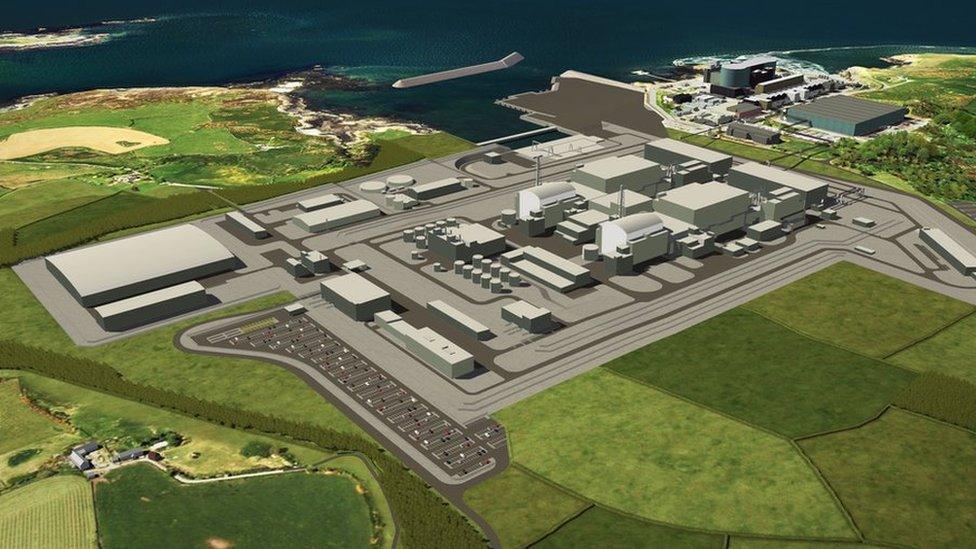
- Published17 January 2019
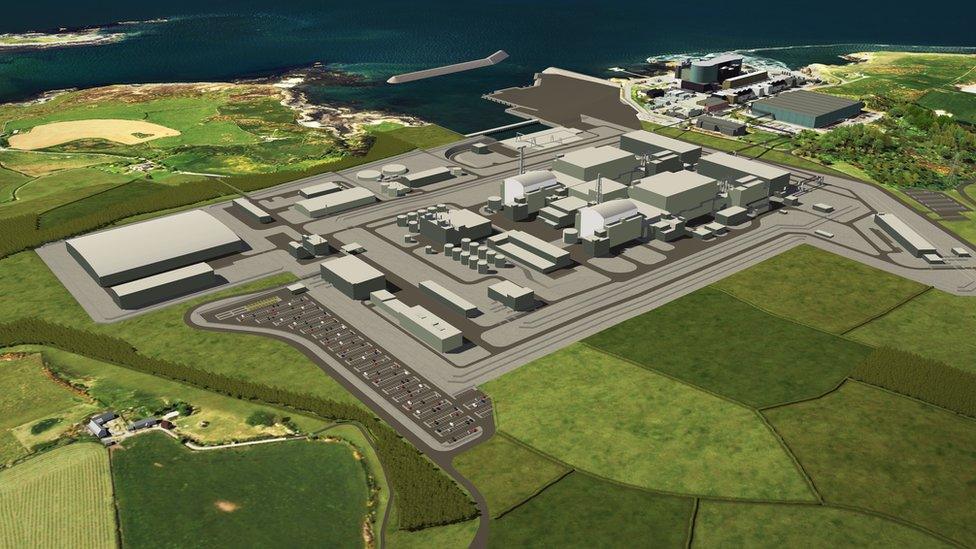
- Published7 December 2018

- Published21 November 2018
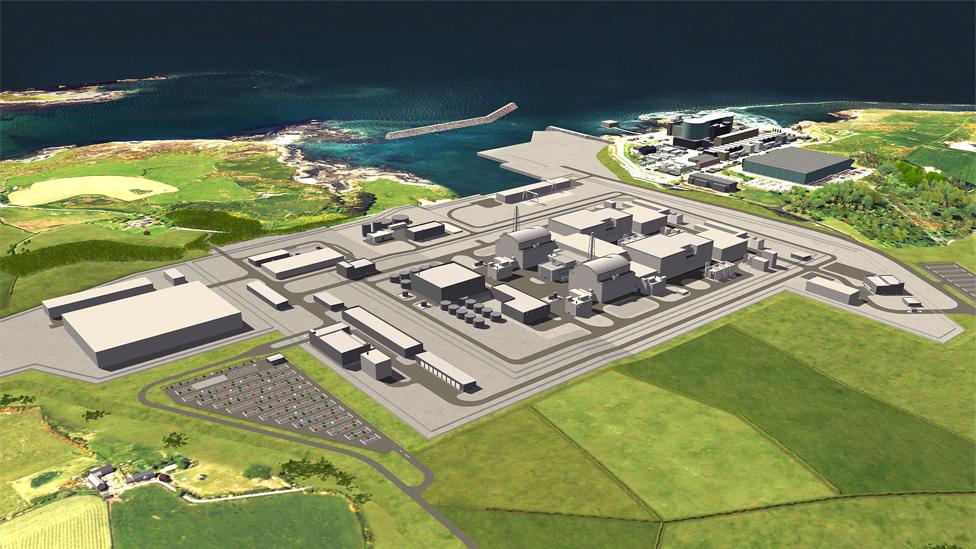
- Published19 October 2018
